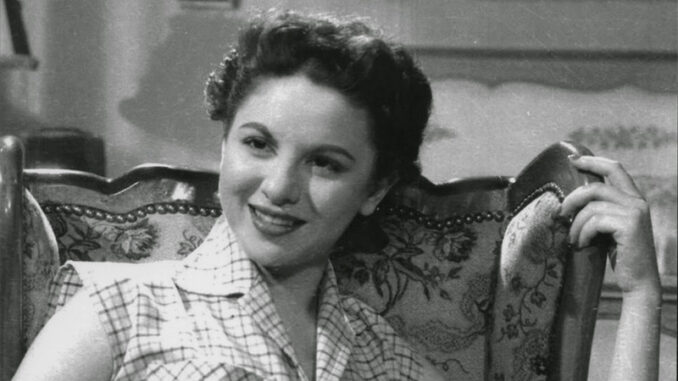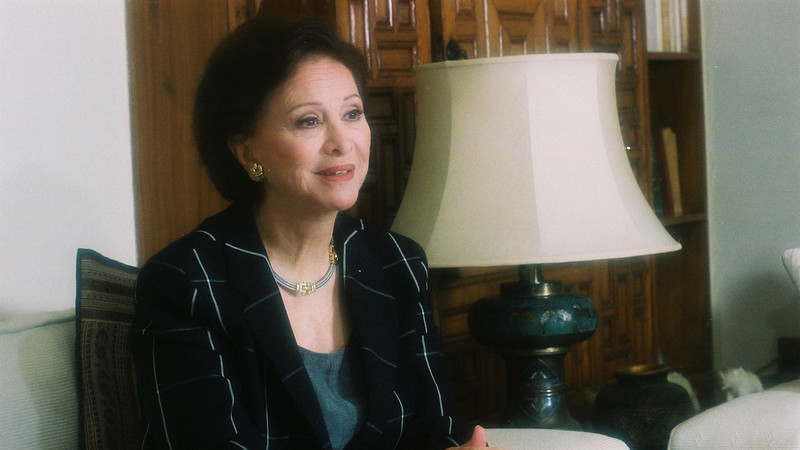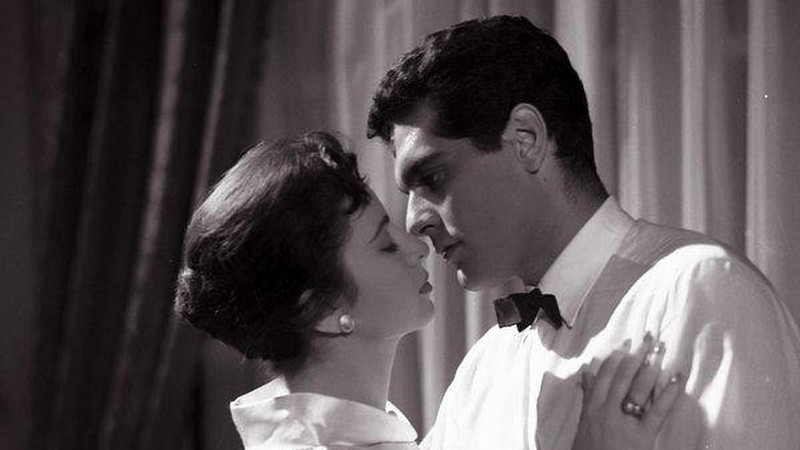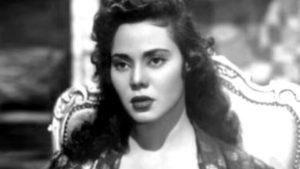
Faten Hamama, Egyptian actress, born 27 May 1931 in Dakahlia Governorate, Egypt. She died on 17 January 2015 in Cairo, Egypt.
Biography and life story of celebrity in English.
Basic info wiki card
Name in English: Faten Hamama
Name in Arabic: فاتن حمامة
Full real name: Faten Ahmed Hamama
Nickname: Lady Screen Arabic
Nationality: Egypt
Language: Arabic, Egyptian dialect
Religion: Islam
Date of birth: 27 May 1931
Place of birth: Mansoura, Dakahlia Governorate, Egypt
Date of death: 17 January 2015
Place of death: Cairo, Egypt
Age: 83 years 7 months and 18 days (upon death)
Astrological Sign: Gemini
Profession: Actress
Genre: Egyptian Films
Years of activity: 1940 – 2000
Social status: Married
Ex-husband: Ezzedine Zulficar (1947-1954), Omar al-Sharif (1955-1974), Mohamed Abdelwahab Mahmoud
Sons: Nadia Ezzedine Zulficar, Tariq Omar al-Sharif
Biography, Life story

Faten Hamama was born on 27 May 1931 in Mansoura, Egypt. Her father was an employee of the Ministry of Education. She won the most beautiful child competition in Egypt, and her father sent a photo of herself to director Mohamed Karim, who was looking for a girl to act with musician Mohamed Abdelwahab in the film “Happy Day” (1940) He was convinced of the child’s talent and entered into a contract with her father to ensure her participation in his future film work, and after 4 years he called her back to appear in front of Mohamed Abdelwahab in “A Bullet in the Heart” (1944), with her third film “Duniya” (1946), she was able to create a footing for her in Egyptian cinema and the family moved to Cairo to encourage the emerging artist and entered the pigeon of the Higher Institute of Acting in 1946. Yousef Wehbe noted her talent and asked her to represent his daughter’s role in the film “Angel of Mercy” (1946), with which she entered a new phase in her life: melodrama, then only 15 years old and the interest of critics and directors began. She again co-starred alongside Yousef Wehbe in the film “Chair of Recognition” (1949), and in the same year she starred in the films “Orphans” and “Six Houses” (1949), which were highly successful at the box office level. The 1950s marked the beginning of the golden age of Egyptian cinema, and the general trend at that time was towards realism, especially by director Salah Abu Saif. She starred in “Yours Day, Injustice” (1952), which was considered one of the first real-life films. She also participated in the first film by Yusuf Shaheen, “Baba Amin” (1950) and then in the film Conflict in the Valley (1954). Kamel Sheikh’s first film, “House No. 13”, was also a first film of mystery or mystery. In 1963 she received the award for Best Actress in the political film “No Time for Love” (1963).

Faten Hamama was married three times, the first in 1947, when she married the director Azaldeen, who was poor during the filming of the 1947 film Abu Zeid al-Hilali, and she was famous for rejecting any scene or shot in which she kissed, but the screenplay “Conflict in the Valley” had a kiss between the two heroes. And to everyone’s surprise I agreed to the kiss shot with Omar al-Sharif, This led to the termination of her relationship with Azerbaijan in 1954, and immediately she married the artist Omar al-Sharif in 1955 after his most famous Islam, and their marriage continued until the separation occurred in 1974. Only a year later, she married radiologist Dr. Mohamed Abdelwahab in 1975, and lived with him in tranquillity until her death.
After a long absence, Faten Hammam returned to the artwork, accompanied by a media buzz, where she participated in the television series (The Face of the Moon) 2000, in which she criticized many of the shortcomings of Egyptian society through the incarnation of a large television broadcaster. In the series, he sympathized with the Palestinian intifada by watching the heroes of the series of events on the land of Palestine, The reason for the media uproar was that work author Majda Khairallah initiated a lawsuit against the production company of the series on the grounds that the series had been distorted by the frequent deletion and addition of the text by his heroine, who, according to the author, was interfering in the director’s work both by selecting stars and in the montage process.
She was named Lady of the Arab Screen. It is regarded by many as a landmark in Arab cinema. It has marked decades of Egyptian cinema development and contributed greatly to the formulation of a worthy image of women’s roles in general in Arab cinema through its representation since 1940.
Faten Hamama died on 17 January 2015 at the age of 83 years and 8 months following a sudden health crisis.











